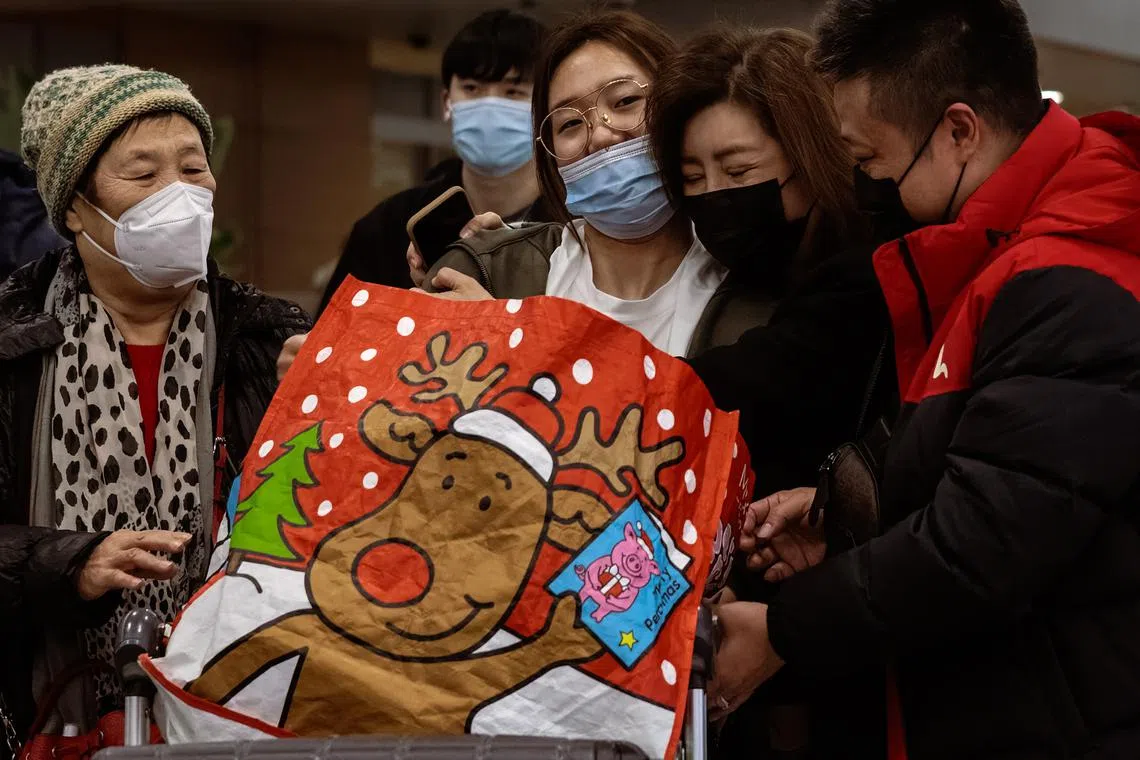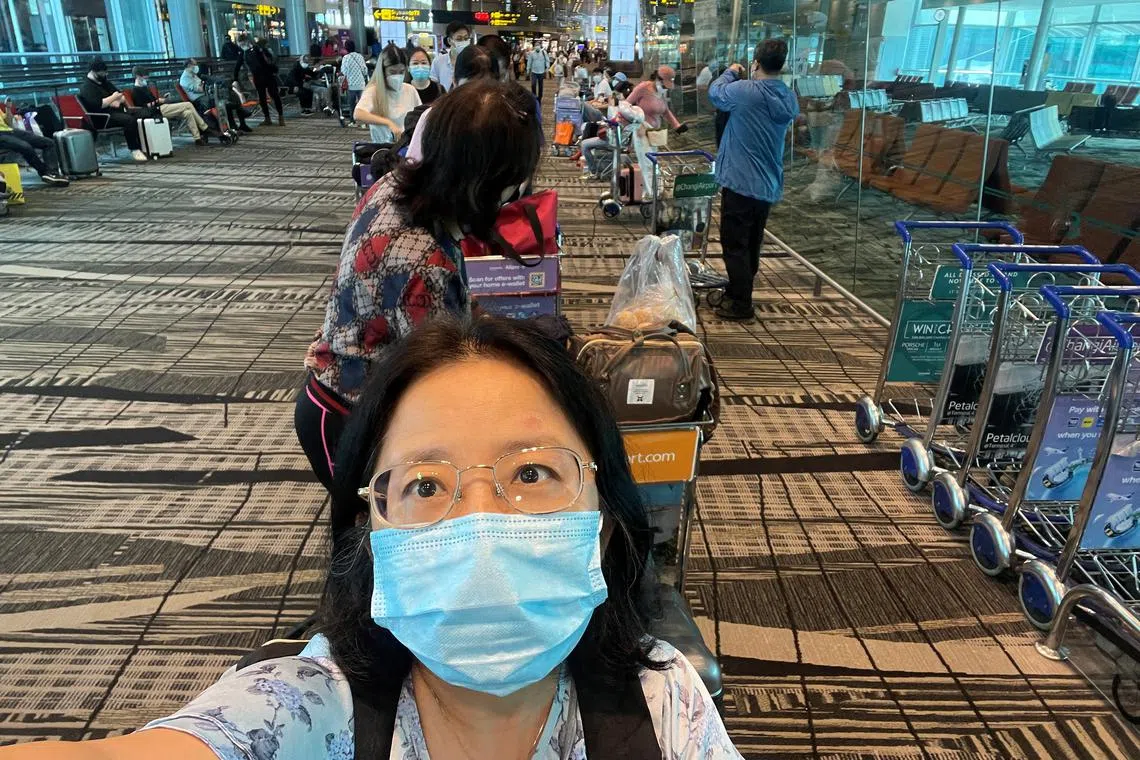Family members reunite in China after 3-year Covid-19 separation
Sign up now: Get insights on Asia's fast-moving developments

The holiday is especially important to Chinese families, as it is the only time of the year when relatives reunite and spend time.
PHOTO: EPA-EFE
Follow topic:
SHANGHAI – Ms Chu Wenhong would fly back to Shanghai and visit her parents at least once a year after she moved to Singapore in 1994.
But she has not been able to do so in the past three years due to China’s signature zero-Covid policy, which involved mass polymerase chain reaction (PCR) testing, citywide lockdowns and quarantining all inbound arrivals, including overseas Chinese such as Ms Chu.
The last time the 54-year-old lab worker visited her home town was in November 2019, one month before the world’s first Covid-19 outbreak was detected in the central Chinese city of Wuhan.
So Ms Chu snatched a ticket in December to fly back after China announced it would end quarantine on all inbound travellers from Jan 8, marking the final unravelling of the country’s zero-Covid policy.
“Finally, I can go back. I have been waiting for this day for a long time,” Ms Chu said from her Singapore home after packing her suitcase on Wednesday, the night before her flight.
The removal of inbound quarantine prompted a surge in demand for plane tickets in countries such as Singapore, which have large communities of overseas Chinese.
Ms Chu, a Singapore resident, paid $2,264 for a one-way ticket to Shanghai, while a return journey used to cost her around $600 before the pandemic.
However, in the absence of a long quarantine, it was a price she was willing to pay to spend time with her family over the Chinese New Year holiday.
The holiday, which runs for seven days starting from Jan 21, is especially important to Chinese families, as it is often the only time of the year when relatives – distant and close – reunite and spend time with one another.
Hotel quarantine
China had imposed inbound quarantine on all arrivals from outside its borders since March 2020. The measure discouraged business travel into China and kept families separated for years, as it involved paying to stay inside a hotel room for two to three weeks.
And even for those willing to endure the hotel quarantine, flights were often unavailable or overpriced, as Beijing drastically cut the number of inbound flights to prevent imported Covid-19 cases.
“China remained closed off after Singapore reopened, so to go back, people needed to do PCR tests and undergo quarantine, and the prices of flight tickets skyrocketed. There were too many obstacles,” Ms Chu said.
China’s easing over the past month of one of the world’s tightest virus regimes

Ms Chu Wenhong poses for a selfie before boarding her flight to China ahead of Chinese New Year, her first time going home since the Covid-19 pandemic erupted.
PHOTO: REUTERS
Ms Chu said she had missed her 83-year-old father and 78-year-old mother, and worried about their failing health.
Her biggest wish is to spend as much time with them as possible when she goes back this round.
“I haven’t seen them for three years; they both got Covid-19 and are quite old. I feel quite lucky actually, as it wasn’t too serious for them, but their health is not very good. So I want to go home and see them as soon as possible,” she said.
Ms Chu said she felt exhilarated to be home after landing at the Shanghai Pudong Airport on Thursday. “I’m so happy because I’ve been looking forward to it for three whole years. I want to see my mother the most and take a good look at her,” she said.
Her mother, Ms Cao Yafang, was equally relieved after reuniting with her daughter. “She is pretty much the same as in the video chat. Now when I see her in person, my heart is more at ease.” REUTERS

